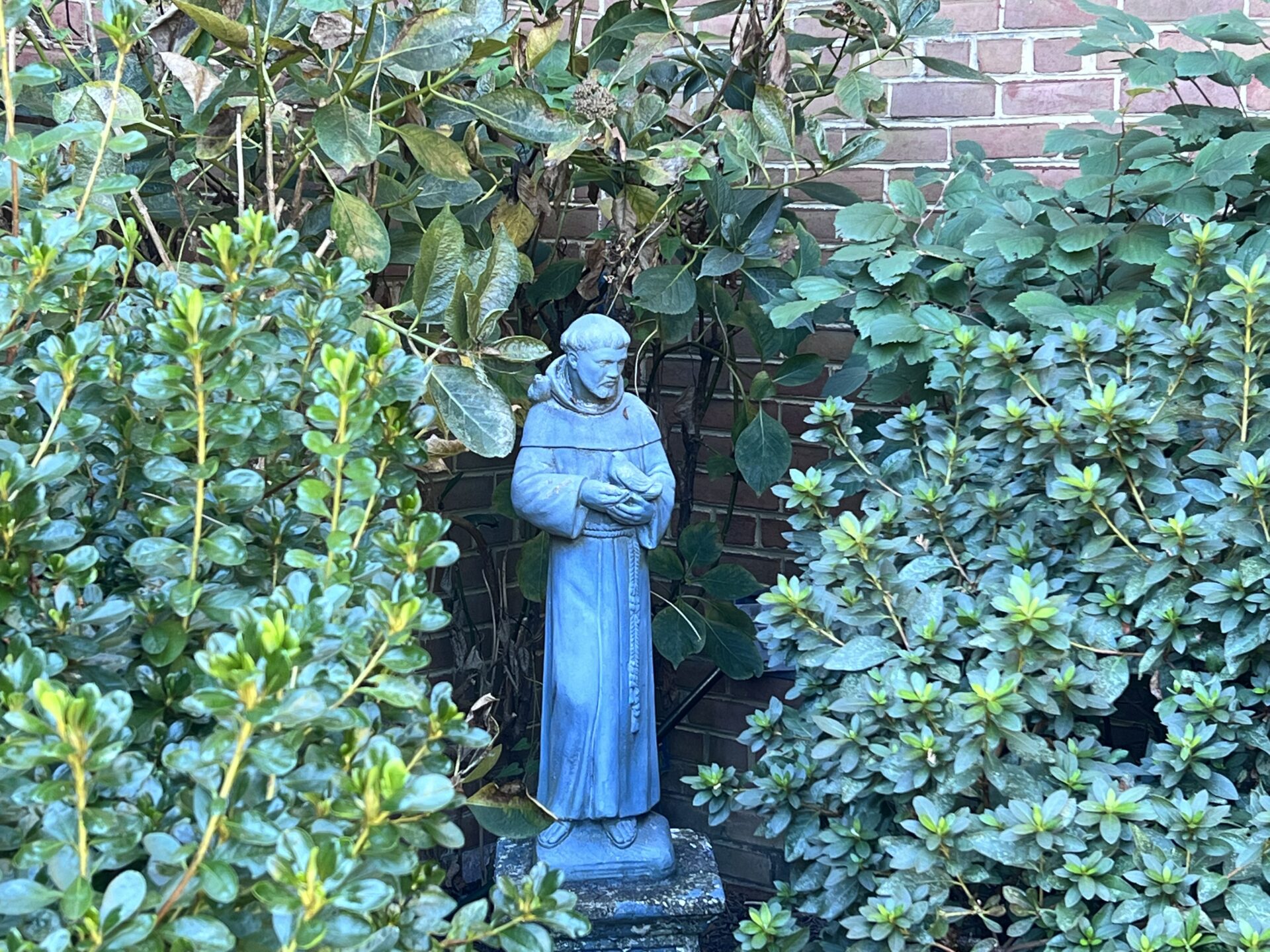Learning from the Book of Nature
Dear Friends in Christ,
In my grandmother’s garden, there was a statue of Saint Francis. It was about two feet high. Francis was holding out his hands the way one might hold them out for the eucharist—only his hands were filled with birdseed. Sparrows would hop up from the ground to feed from the saint’s hand.
The effect was tender and charming. It was also completely inadequate to express who Francis was.
We know Francis as patron saint of animals (hence the blessing of pets close to October 4, the feast of Saint Francis—our is on Sunday, October 5, at 4:00 p.m.). Stories tell of Francis preaching to the birds or befriending a wolf. But Francis’s connection with the natural world went much deeper than these fanciful stories.
Francis wrote of his profound kinship with all creation—Brother Sun and Sister Moon, as he named them. He lived detached from wealth and establishment in a way that rendered him free to connect with the whole of the natural order around him.
When we think about our life as Christians, we often think about books of prayers and the walls of the church. We forget about what John Calvin called “the book of nature”—the whole revelation of the created order, just as precious and just as moving as scripture itself. Our Christian responsibility is not only to books and walls. It is to the sun and the moon, to the sky and the waters, to a fragile planet whose climate is changing too fast and whose vulnerability to human activity becomes more and more evident all the time.
Our guest preacher this Sunday, the Rev. Dr. Ruthanna Hooke, teaches preaching at Virginia Seminary—including a course called “Preaching in a Time of Eco-Crisis.” My hope is that she will stir our hearts to know our kinship with the world around us, to love with tender care the world which God has entrusted to us.
It’s not just for the birds. (Sorry—I can’t resist a bad pun.) The legacy of Francis is for all of us, now more than ever.
Yours in Christ,
Anne+

